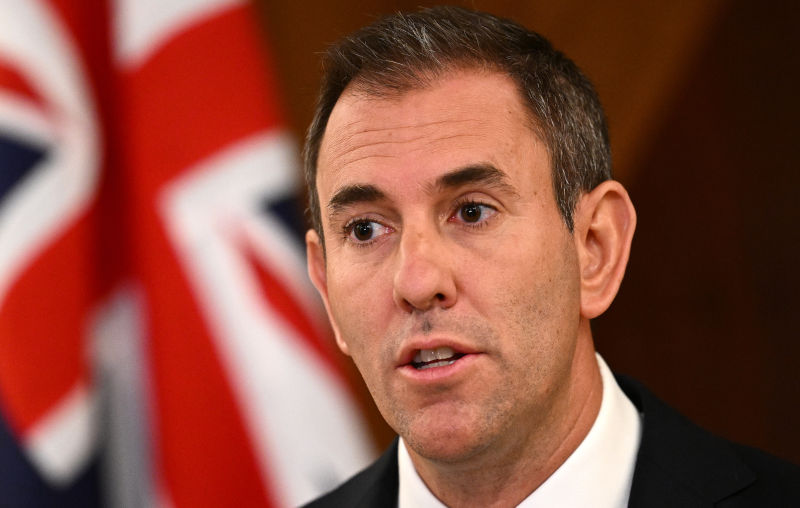Chalmers places indefinitely growing productivity at heart of economic strategy
February 5, 2023
Treasurer Jim Chalmers essay in The Monthly, Capitalism after the Crisis, was the first real opportunity we have had to get a glimpse of his philosophy as an economist rather than a politician. I sometimes forget how academic Chalmers is, being a PhD, when we rarely see him in such academic settings.
His essay is thoughtful, personal, and distinctly strays from the simple, direct messaging which has come out of the Labor Party since the 2022 election. He lays out the blueprint for his term as treasurer and is unafraid to criticise neoliberalism and supply-side economics in a significant departure from the party of safe change approach we have seen from him until now. With this in mind, here are a few thoughts on the topics he raised.
Chalmers use of a quote from Heraclitus in his opening remarks is very characteristic of his essay. Heraclitus is known for his theory of the unity of opposites, suggesting that opposing forces in society and nature are co-dependant and create a synthesis that transcends and reconciles them. This is a fundamental concept in dialectical materialism. Hegel believed that these phenomena could be resolved through analysis, whilst Marx believed them to be contradictions, his focus being on labour and capital, which could only be resolved through a fundamental reorganisation and radical democratisation of social and economic institutions.
Through his essay, Chalmers conveys his accordance to the Hegelian view. He seeks to create a form of capitalism which reconciles capital and labour, dismantling opposition between the two. He believes that the core conflict between them, predicated on eachs attempts to expand their own portion of the national income, either by squeezing profits or cutting wages via inflation, can be subverted by leaving the income distribution alone, and simply focusing on increasing productivity so that the total national income increases, and economic gains are delivered to both. Chalmers and his Prime Minister, Anthony Albanese, are united in this philosophy.
We can lift wages and profits and also create even more jobs if we make our economy more productive Productivity is at the centre of Labors plan for a better future for Australia (Albanese, 2022).
Through this approach, Chalmers and Albanese seek to gain votes from the teal Independent candidates who represent wealthy communities that would benefit from gains to capital, but are wary of supporting the Coalition due to its record of obstructing action of climate change, whilst maintaining a progressive base and defending against the Greens. Its a part of their messaging of consensus politics which was exemplified in their Jobs and Skills Summit.
The Jobs and Skills Summit brought together Australians, including unions, employers, civil society and governments, to address our shared economic challenges (Chalmers, 2022).
Whats ironic is that for all his criticisms of the neoliberal era, it was under this exact pretence of consensus politics that neoliberalism was ushered into Australia after Labor Party Prime Minister Bob Hawkes National Economic Summit of 1983, which laid the groundwork for over a decade of privatisation and deregulation.
Governments, business and unions, and the community as a whole, have agreed on common goals and objectives and have co-operated together for their achievement (Hawke, 1983)
The difference between the Hawke and Albanese flavours of consensus, however, is that in 1983 there was substantive microeconomic reform. The major economic issue at the time was the relative strength of labour and the profit squeeze. Hawke and his Treasurer Paul Keating chose the Hegelian approach, resulting in the Prices and Incomes Accord, an agreement which explicitly tempered labour to the benefit of capital by offering wage restraint from the unions in exchange for other social democratic reforms.
In 2022, whilst still according with Hegel, Chalmers believes the solution to the class struggle is, instead of altering the income distribution, indefinitely growing productivity. This thesis is reminiscent of Malcolm Turnbulls 2016 campaign platform based on the slogan Jobs and Growth, also a promise to deliver economic gains via economic growth, opposing the Labor Leader Bill Shortens plan to deliver gains via progressive microeconomic reform. This dynamic was repeated in 2019.
Labors election platform in 2022 was defined by their two successive losses in those elections which, after a series of embarrassing scandals and broken election promises from the Coalition, they were polling to win. Labors post-election review found that the biggest demographics that swung against them in 2019, were Chinese Australians, Christians, people living in coal-mining communities, and Queenslanders between the ages of 25 and 34. In other words, they were losing conservative-leaning voters. By opting for progressive microeconomic reform, they had chosen a side in the class conflict which necessarily alienated capital. The Coalition on the other hand, with a leader who refused to take a side in the class conflict and promised to deliver gains to both through economic growth, was able to pick up voters on the margin. After losing these two elections with the same strategy, Labor finally conceded in 2022, to adopt the Coalitions strategy, replacing the word growth with productivity.
Overall, Chalmers recognition of the economic and political challenges facing Australia is astute, however he stops short of providing precise and convincing solutions. While his level of intellectual candour is welcome, a Treasurer still within his first year of government will have plenty of opportunity to show Australians how his ideas work in practice with his promised reforms of the Reserve Bank and the Productivity Commission, and the Employment White Paper, which will be the first of its kind since 1945.
